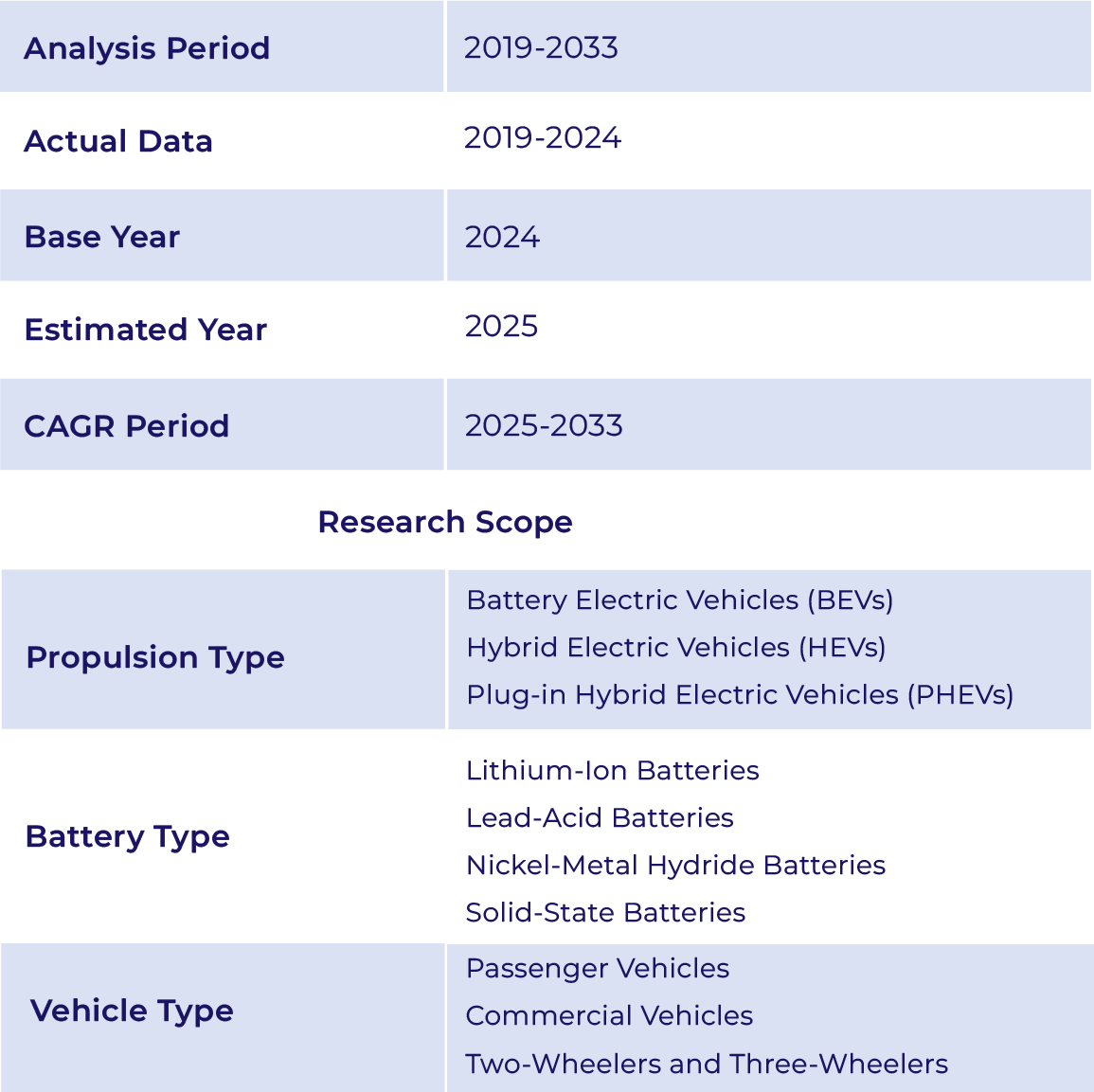India Electric Vehicle Battery Market Growth and Performance
- Revenue in the India EV battery market is estimated to reach US$ XX Million by 2032, with an expected Compound Annual Growth Rate (CAGR) of XX% from 2024 to 2032.
- In 2023, the market size of the Electric vehicle battery industry in India was US$ XX Million.
India Electric Vehicle Battery Market Outlook
The India Electric Vehicle Battery Market is poised for significant expansion, driven by increasing EV adoption, policy support, and advancements in battery technology. The sector is expected to witness substantial investments, with India's cumulative battery demand projected to reach 220 GWh by 2030. The transition towards Lithium Iron Phosphate (LFP) batteries, which currently hold over 60% market share in India, continues due to their cost-effectiveness and thermal stability. India produced approximately 8 GWh of battery capacity in 2023, with plans to scale up to 50 GWh by 2030 under government-led initiatives. Strategic alliances, such as Exide Industries partnering with SVOLT Energy Technology, are accelerating knowledge transfer and manufacturing capabilities. Additionally, the focus on sustainability is growing, with efforts directed toward battery recycling and eco-friendly production practices. As India strengthens its position in the Asia Pacifc EV battery market, enhanced R&D and infrastructure investments will be key to driving the India EV market future growth.
India Electric Vehicle Battery Market Drivers
The primary driver of the India Electric Vehicle Battery Market Growth is the government's push for clean mobility through policies such as the Production Linked Incentive (PLI) Scheme for Advanced Chemistry Cell (ACC) battery storage, which aims to attract investments worth INR 18,100 crore (USD 2.2 billion). The increasing adoption of EVs, with sales surpassing 1.5 million units in 2023 and expected to exceed 10 million units by 2030, has amplified the demand for efficient and cost-effective battery solutions. Strategic partnerships, like the one between Exide Industries and SVOLT Energy Technology, exemplify the industry's focus on accelerating battery technology adoption. Additionally, companies are investing heavily in battery thermal management systems to optimize performance in India’s diverse climate conditions. The rise of business models like battery-as-a-service and battery swapping, particularly in the two-wheeler and commercial vehicle segments, is addressing cost and infrastructure constraints. By 2025, India is expected to have over 1,000 battery-swapping stations, significantly enhancing accessibility. These factors collectively contribute to the expansion of the India Electric Vehicle Battery Industry
India Electric Vehicle Battery Industry Trends
A major trend shaping the India Electric Vehicle Battery Industry is the shift towards sustainable battery production and circular economy principles. Companies are enhancing their recycling capabilities, with India targeting a 20% battery recycling rate by 2025 to minimize environmental impact and ensure the longevity of battery components. The emergence of advanced battery management systems (BMS) is optimizing efficiency and safety, ensuring consistent performance across different vehicle categories. The industry is also witnessing rapid advancements in battery chemistry, with lithium-ion and solid-state batteries gaining prominence. Companies like Ola Electric and Amara Raja Batteries are investing in gigafactories, with Ola planning a 100 GWh battery production facility to support its expanding EV portfolio. Government policies aimed at reducing import dependency and strengthening domestic manufacturing are further propelling growth. Business models like battery swapping and leasing are revolutionizing the market, particularly in the commercial EV segment, where operational efficiency is critical. The EV battery demand is expected to reach 220 GWh by 2030, necessitating rapid infrastructure expansion. These developments reflect a strong commitment to innovation, sustainability, and economic viability in the India electric vehicle battery market.
India Electric Vehicle Battery Market Industry Development
The industry is undergoing rapid transformation with significant developments in domestic battery manufacturing and strategic alliances. For instance, in February 2025, India’s Ministry of Heavy Industries signed an agreement with Reliance New Energy Battery Limited under the PLI ACC scheme, granting it 10 GWh of manufacturing capacity. This move strengthens India’s domestic battery production and supply chain. Additionally, Exide Industries secured a pact with Hyundai Motor India to supply EV batteries, reinforcing the company’s position in the market. Furthermore, Anupam Rasayan India Ltd has also entered the EV battery space by signing a five-year agreement with U.S.-based Elementium Materials Inc. to supply specialized battery chemicals, with projected sales between USD 350-450 million. The company is further expanding its production capacity with a new manufacturing facility to meet the growing demand. India is also ramping up infrastructure to support battery storage solutions, with cumulative investments in battery energy storage expected to exceed USD 3 billion by 2030. These industry advancements underscore India’s commitment to fostering innovation and achieving self-sufficiency in EV battery production.







